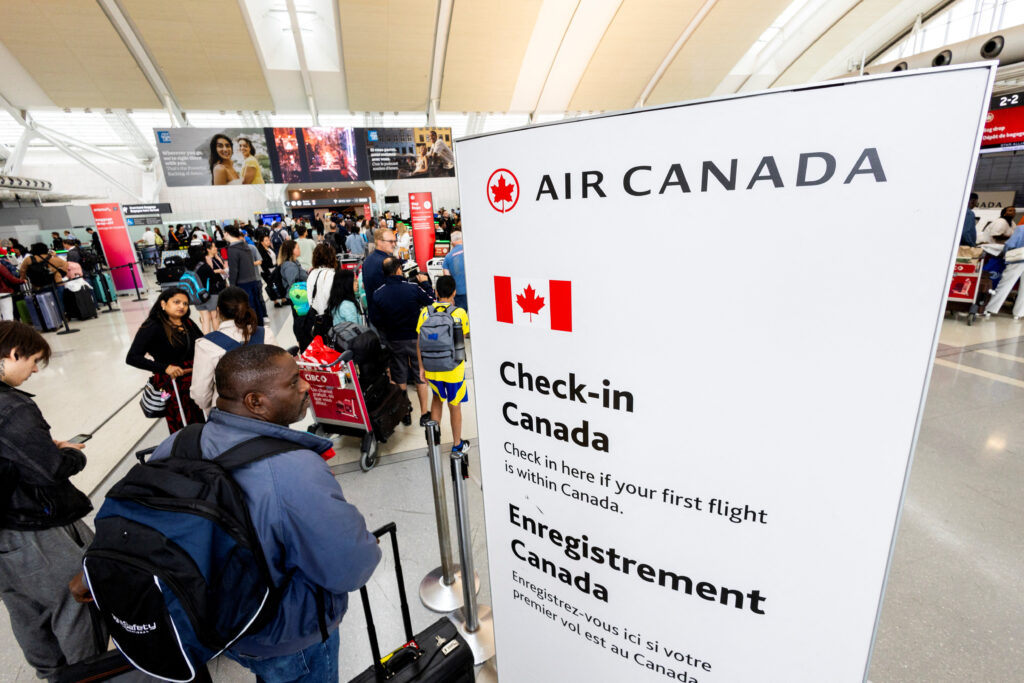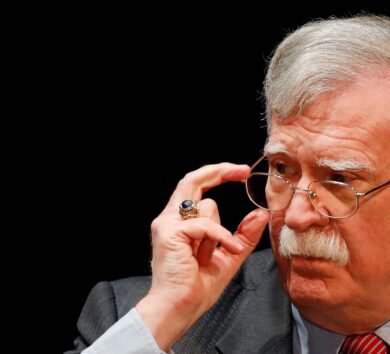

OTTAWA (Reuters)
Canada’s government stepped in four times to aid seven companies last year, stopping strikes using an obscure Labour Code provision. A similar decree on Sunday failed, however, as Air Canada’s flight attendants refused to obey and stayed on strike for three days.
Their defiance marked a watershed, unions and labour experts declared, saying it will strengthen unions in negotiations, dissuade employers in federally regulated sectors from seeking government intervention, and complicate federal efforts to end work stoppages through this provision.
“We will reflect back on this dispute, this strike, as a turning point,” said Chris Roberts, professor at Carleton University and National Director of the Social and Economic Policy Department of the Canadian Labour Congress.
Section 107 of the Canadian Labour Code, enacted in 1984, gives the jobs minister overarching powers to end strikes and lockouts to “maintain or secure industrial peace.” It was rarely invoked, but since June 2024 it has been used five times in crucial sectors like railways, ports, and postal services.
The Canadian Labour Congress, Canada’s largest workers group, has called for parliamentary legislation to withdraw these powers.
“It is clear now with the record of interventions over the last year that having these superpowers available to the minister is problematic,” Roberts said.
The Canadian Union of Public Employees (CUPE), representing the 10,000 flight attendants, has set a precedent by defying the government order for the first time. It has also filed one of many union lawsuits against Section 107.
“Section 107 is corrosive, creates a fundamental imbalance in labour relations and needs to be repealed,” CUPE spokesperson Hugh Pouliot said in an email.
Jennifer Kozelj, press secretary to Jobs Minister Patty Hajdu, said sending the CUPE dispute to arbitration was a tough choice.
“Canadians and our economy are experiencing significant disruption already. Lost revenue can make or break a small business and cause deep financial difficulties for families,” she said in an emailed response.
“Every dispute is different, and we cannot speculate on how each will play out; however, we will always maintain that the strongest deals happen at the table.”
Unions believe the tide has turned.
“Once you have the first union defy, chances are the next union is also going to very seriously contemplating that,” said Bea Bruske, president of the Canadian Labour Congress, which represents 3 million workers across the country.
“I think the willingness of the federal government to use Section 107 in the future will be politically constrained because, this time, it backfired on it,” said Michael Lynk, professor emeritus of law at Western University in London, Ontario, noting that the government had no back-up tool.
The Teamsters union, which was involved in two major negotiations last year against the country’s two biggest rail companies – Canadian National Railways and Canadian Pacific, has filed court challenges against Section 107.
“Our ultimate goal is to prevent the federal government from simply ordering workers back on the job,” said Christopher Monette, The Teamsters’ director of public affairs.
Industrial narcotic
A year ago, Labour Minister Steven MacKinnon, under then-Prime Minister Justin Trudeau, effectively ordered the end of a lockout and a potential strike at the two railways by asking the Canada Industrial Relations Board to issue back-to-work notices and start binding arbitration.
Prior to that, then-Labour Minister Seamus O’Regan directed CIRB to impose binding arbitration on the airline WestJet and its unionised mechanics.
In November, MacKinnon again forced workers back by invoking Section 107 at the Port of Quebec, Port of Montreal and British Columbia ports. In December, he did that with the Canadian Union of Postal Workers.
Workers and labor rights experts have claimed invoking this provision effectively removed their right to strike and a level playing field in negotiations with employers, while companies benefited from government intervention.
“It becomes an industrial relations narcotic for employers to use it to run out the clock and then turn to the government and therefore order binding arbitration,” Lynk from Western University said.
Unlike work stoppages that have been ended through legislation, use of this provision lacks the democratic stamp of approval by the people’s representatives, he added.
Air Canada did not immediately respond to a request for comment.
The carrier is facing another major negotiation next year between 14,000 baggage handlers and aircraft maintenance workers whose contract expires in March 2026.
Dave Chartrand, Canadian general vice president of the International Association of Machinists and Aerospace Workers, which represents these workers, said his members have the right to strike if they feel negotiations are unproductive.
“If you’re not sitting at the table with us and you’re not bargaining, and you’re not moving forward and trying to get a fair contract for our members, we’re willing to withhold our manpower and our labor,” Chartrand said in an interview. “It’s a constitutional right.”







Comments